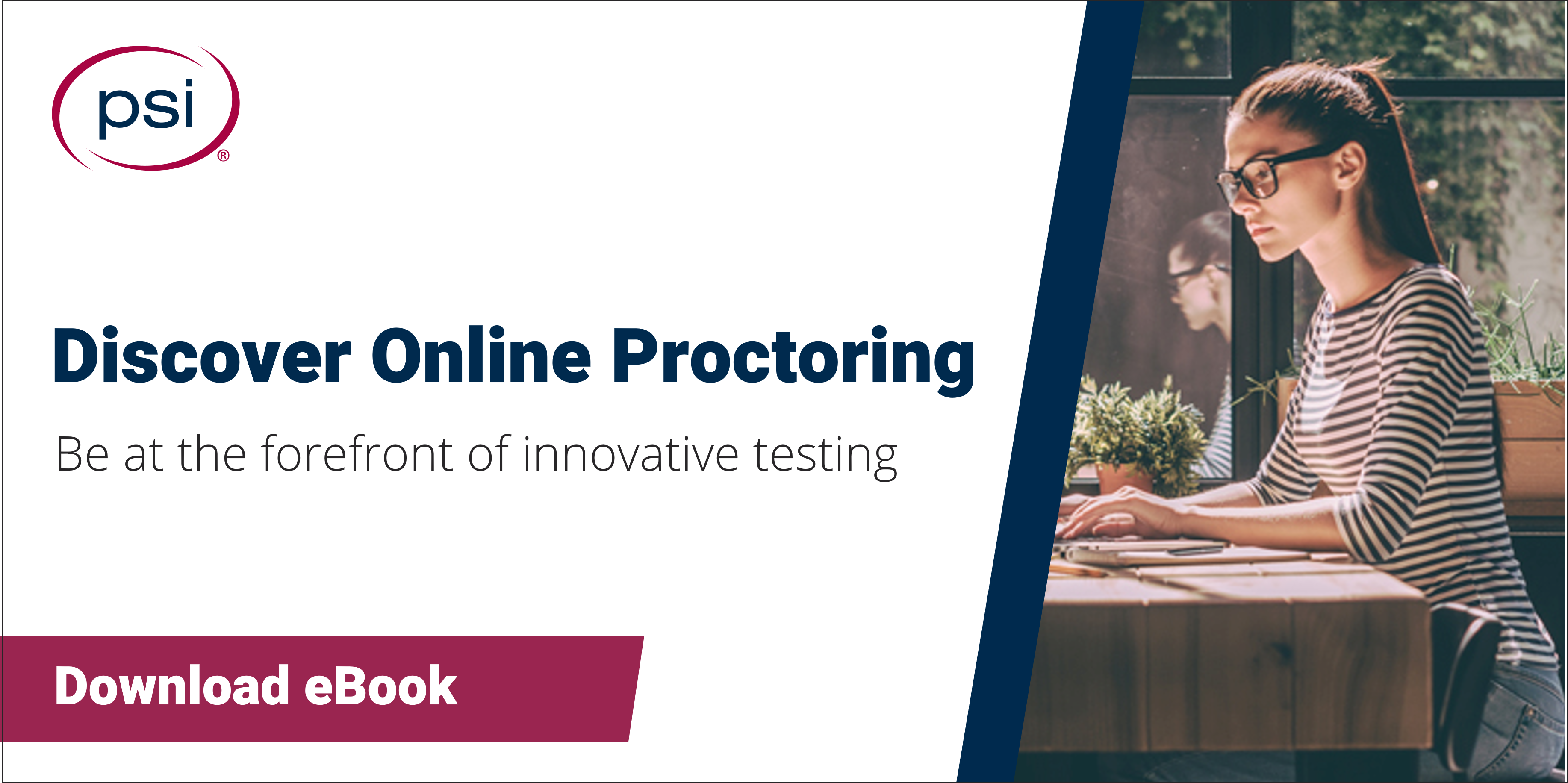Despite the well documented challenges of 2020, there were silver linings. Like many people, I developed a love for hiking and sports – particularly soccer and boxing – and I welcomed multiple houseplants and a kitten to my household! All allowing me to enjoy time that would have previously been spent on a plane.
 When it comes to credentialing, Covid-19 forced us all to rapidly adapt to an online world. And with this move, the pace of progressive change was fast-tracked. Not only did we learn a lot in a relatively short space of time, we also now have a wealth of new data to inform our future programs.
When it comes to credentialing, Covid-19 forced us all to rapidly adapt to an online world. And with this move, the pace of progressive change was fast-tracked. Not only did we learn a lot in a relatively short space of time, we also now have a wealth of new data to inform our future programs.
Against this context, I thought it would be interesting to talk to my colleagues about their top takeaways from the past year. While it would be impossible to summarize this remarkable year in one blog, below are some of the PSI team’s key insights, challenges, and highlights from 2020.
1. Importance of Candidate Information
With the rapid move to online proctoring, communication with candidates was key. We worked closely with clients to embed possible resources into their candidate facing information. And we were able to very quickly see the benefits that this investment brings.
A series of relatively simple, but critical, steps serves to improve communication, ensures smooth test delivery, and allays candidate concerns. By providing information on the online candidate experience videos, accessible links to a system compatibility checker, or information by email, candidates are kept up to date. The result is a suite of best practices that we are applying to all of our programs.
2. A Year of Virtual Meetings
With the move online came the widespread adoption of virtual meetings. After initial doubts about not meeting in person, and the possible impact on exam quality, our online meetings have been smooth and productive. With the added benefit of video, subject matter experts stay fully engaged. What’s more, experiencing people in their own environment has led to closer connections and collaboration.
An area of concern for some of our clients was how to compensate their volunteers for participating in virtual exam development meetings. In-person meetings are kind of a mini-vacation for the participating subject matter experts. In exchange for their time and expertise, volunteers get flown to a nice place for the meeting, stay at a nice hotel, and have meals and some activities paid for. When meetings went virtual, volunteers lost these perks of participation, and clients were left searching for ways to repay the favor. As with so many areas during 2020, creativity came into play here. Clients sent per diem payments, gift baskets and even went to the trouble of finding out favorite local restaurants to have lunch delivered.
3. Ability to Pivot
Covid-19 led to the shutdown of test centers initially, along with so many other businesses. While these restrictions were challenging, it is a real positive that where healthcare professionals were needed in the field to support the pandemic response, we were able to keep test centers open for programs deemed as essential by local and regional governments.
Flexibility was exhibited in our test centers with the rapid adoption of increased hygiene and safety measures, social distancing, and mask wearing as well as giving candidates more options to easily reschedule assessments when they needed to quarantine or were experiencing health difficulties themselves.
The move to multi-modal testing with live proctoring in response to test center shutdowns was also a display of adaptability and resilience. Technology gave candidates the option of at home testing in a safe environment while still pursuing their career goals, providing much needed continuity in an uncertain time. And our data shows that satisfaction rates remain high regardless of modality.
Check out our infographic on Multi-Modal Testing in 2020.
4. Address the Skills Gap
Organizations were already experiencing a skills gap when Covid-19 hit. And this has only been exacerbated by a pandemic that has led to increased unemployment as well as a wider disparity between the skills needed and those available. In response, organizations are investing to address the gap by upskilling and reskilling the workforce and helping individuals to find new opportunities. One example is IT certification providers who are offering low or no cost routes to training and exams.
Related: Read about PSI and the Microsoft Global Skills Initiative.
Another skills gap, and a trend that has emerged to address it, is the pairing of new soft skills assessments with more traditional technical exams. More and more credentialing providers are recognizing the importance of assessing the broader person with a range of personality assessments. And this recognition in the credentialing process goes hand in hand with a range of government and business initiatives to address the skills gap.
Get a free download of our eBook: Adding Value to Credentialing with Soft Skills.
5. Online Proctoring
Before Covid-19, around 10-15% of candidates were tested using online proctoring. This increased to over 70% during 2020. While a number of organizations were already in the process of making the shift, many were coming to online proctoring for the first time. So it’s understandable that there were questions and concerns about the potential impact.
We’ve been able to respond and reassure with guidance around security, maintaining integrity, and staying candidate-centric. For example, tried and tested tools when it comes to test security include a lockdown browser and built-in flagging criteria. Our data forensics across online proctored and in-person testing show no increased malpractice, as well as comparable mean scores, pass rates, and exam reliabilities.
Read more about the future of test security.
Looking Forward
2021 will no doubt present the credentialing industry with further challenges. Both personally and professionally. However, if we can take the positives from 2020 – whether that be houseplants, hiking or workplace learnings from the move online – we’ll be able to continue improving our ability to deliver high quality credentialing programs. Supported by assessments that assure professional competence and high standards at a time when they are most needed.


 Rory McCorkle, PhD. is the Senior Vice President, Certification & Admissions at PSI Services LLC. He has extensive experience both managing and consulting for credentialing programs, specializing in the strategic organization of these programs, their design and development. During his career, Rory has worked with over 350 associations and IT credentialing organizations, including well-known licensure programs and globally renowned certifications. Rory received his PhD in Organizational Leadership from The Chicago School of Professional Psychology, as well as his MBA from Drexel University’s College of Business.
Rory McCorkle, PhD. is the Senior Vice President, Certification & Admissions at PSI Services LLC. He has extensive experience both managing and consulting for credentialing programs, specializing in the strategic organization of these programs, their design and development. During his career, Rory has worked with over 350 associations and IT credentialing organizations, including well-known licensure programs and globally renowned certifications. Rory received his PhD in Organizational Leadership from The Chicago School of Professional Psychology, as well as his MBA from Drexel University’s College of Business.